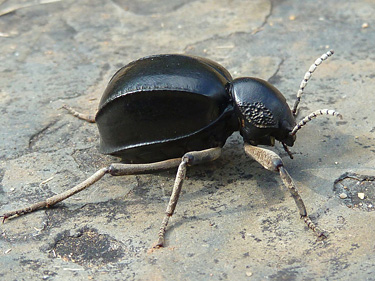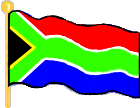Qongqothwane
Qongqothwane is the knocking beetle. It translates literally from Xhosa to "Knock-knock Beetle." They're called this because they actually make a knocking sound. They do this by striking their abdomens on the ground, making a rapid tapping sound as part of their mating ritual.
The Knocking Beetle is thought to bring good luck by the Xhosa. That's why this song is sung for good luck at weddings.

Qongqothwane
Knock-knock Beetle
(The Click Song)
Wedding Song
Wedding Song
(Xhosa)
(English)
Igqirha lendlela
Nguqongqothwane,
Igqirha lendlela
nguqongqothwane
Igqirha lendlela,
nguqongqothwane
Sebeqabele egqith' apha
Nguqongqothwane
Sebeqabele egqith' apha
Nguqongqothwane
Sebeqabele egqith' apha
nguqongqothwane
The witch doctor of the road
He's the knock-knock beetle,
The witch doctor of the road
He's the knock-knock beetle,
The witch doctor of the road
He's the knock-knock beetle.
He passed by here
He's the knock-knock beetle,
He passed by here
He's the knock-knock beetle,
He passed by here
He's the knock-knock beetle.
Notes
Xhosa is a tonal language (like Chinese). Each X, C, and Q represent one of three distinct click types.
This song only has the Q click. It an alveolar click, meaning it's articulated with the tip of the tongue touching the ridge behind the upper teeth, near in the front-middle of the roof of the mouth. Start there and move the tongue down to make the click.
Learn how to produce the basic Xhosa clicks here.
Learn the pronunciation of qongqothwane (knocking beetle).
Comments
The knocking beetle is also thought to bring rain. Perhaps that's because the way they get water is by the fog that rolls in from the ocean. They literally stand on their heads and let the fog condense on their backs. From there the water rolls down into their mouths.
There's also a South African game called Toktokkie. It's interesting to note that Toktokkie is the Afrikaans word for knock-knock beetle. The game consists of running up to someone's front door and knocking (or ringing the bell), and running away. In addition to that game, according to Wikipedia, "The beetle is used in children's games to point the way home, but also has a deeper symbolism, pointing the way to a better future in times of trouble."

Thanks!
Thanks!
Thanks!
Thanks and Acknowledgements
Image: Wikipedia - White-legged Toktokkie on the Phalandingwe nature trail, Pelindaba, CC BY-SA 3.0.

























